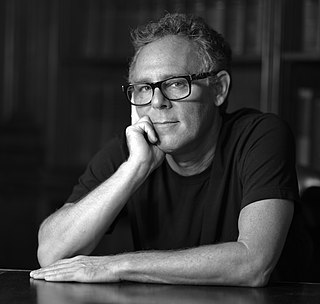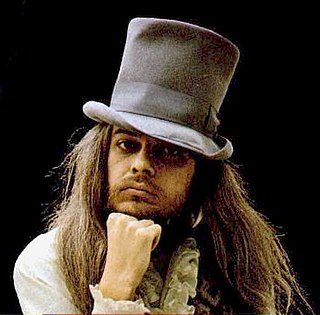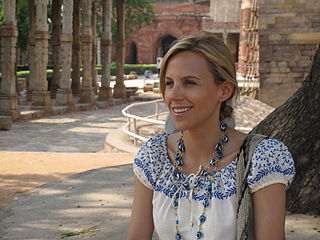A Quote by Duncan Jones
My job is really to... everyone is reading the script, and my job is to make sure we all interpret it in as much the same way as possible. And then I give them the freedom to sort of - to get their performance across and then make suggestions where things are not working and accentuate and push things where they really are working.
Related Quotes
Movies that I remember working on, or things that I remember working on, are things that took years of struggle and strife to get them off the ground or get them in front of the public. You don't have that kind of strife or whatever with a television show. It has an automatic platform. You go in, you do your job, and then it goes on air, and that's that.
My job is to not be easy on people. My job is to make them better. My job is to pull things together from different parts of the company and clear the ways and get the resources for the key projects. And to take these great people we have and to push them and make them even better, coming up with more aggressive visions of how it could be.
It's cool. You can laugh about it, but at the same time you can't really get caught up in it because you're here for a job and it's to win football games. Being on this team, being with the head coach here and the quarterback we have keeps you humble. It keeps you hard working. You can laugh and giggle about stuff, but then at the same time you've got to make sure you're prepared and practicing hard still.
What's really important is the people, first of all. I like working with people who are kind, above all else. I don't really want to work with someone who will manipulate me. The idea that you must treat actors a certain way in order to get a performance out of them kind of disturbs me, and it's disregarding what we do. Our job is to do our job.
It's interesting because the way J.J. cuts - we're very close with our editors as well, so it's kind of the first cut and then he went back and started tightening things up, etc, then loosing things when it was too tight. Then you start watching it and you start figuring out performance - not performance, character-wise I should say, who you're really able to follow, whose journey is harder to follow, and you make all that work.
When you're working in service to a big project, there's always the question of, 'Is there total freedom to do what I think is right artistically, or is this a job?' It's okay for things to be a job. I'm perfectly comfortable working. I don't need to sit around and quench whatever personal artistic thirst I have at all times.
[In the case of research director, Willis R. Whitney, whose style was to give talented investigators as much freedom as possible, you may define "serendipity" as] the art of profiting from unexpected occurrences. When you do things in that way you get unexpected results. Then you do something else and you get unexpected results in another line, and you do that on a third line and then all of a sudden you see that one of these lines has something to do with the other. Then you make a discovery that you never could have made by going on a direct road.
Unfortunately, when you're working in film, it's this huge machine, and you've got to get everyone right there, so you get kind of locked into things. I'm not sure where the artistry in film making is. It's usually that moment when you're on set and you're working with the actors. That's the time to play around, the moment of theater. And then you can shape things. But a lot of it is just managing stuff. It's upsetting because you get away from the core.
I'm sort of an 'automatic' writer. I'm not much for chiseling away at songs or working at them for days trying to make them perfect. If I can sit down and write something in five minutes, then that's great. And if that doesn't happen, then either it doesn't get finished or else it's usually not any good.
To a certain extent everybody has a certain sort of way of being a persona that they learn how to be when they're really little. They figure out that if they're really funny, or really pretty, or if they work really, really hard or are really smart, then that's what's going to get them by. That is what is going to make people like them.






































